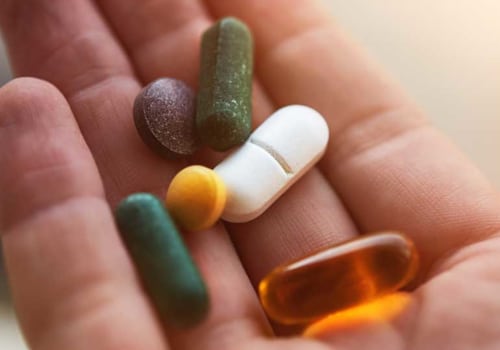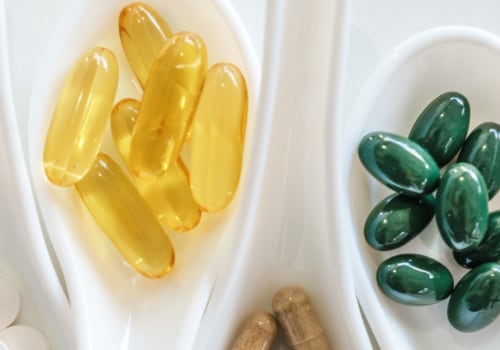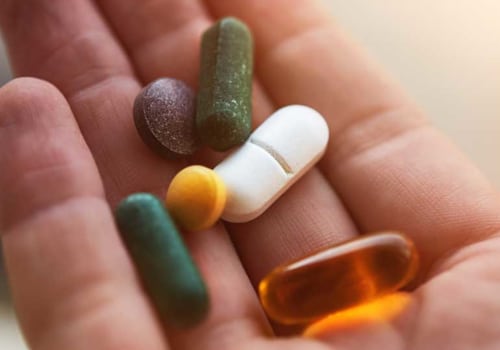A new study published in the journal Obesity found that dietary supplements do not result in dramatic weight loss, as they claim. In fact, it is rare for people taking these supplements to lose a significant amount of weight, research showed. Tempting claims, but are the products compliant?. Does it help you lose weight? Natural Medicines, an independent group that looks at supplement research, says there is not enough reliable evidence to qualify it.
The National Center for Complementary and Integrative Health states that chitosan has not been shown to be effective in losing weight. Chitosan usually does not cause side effects, but some people have an upset stomach or constipation. If you are allergic to shellfish, you should not take chitosan, because it is made from shellfish. Natural Medicines says there isn't enough evidence to assess how well glucomannan works for weight loss.
Glucomannan can also make it difficult for the body to absorb medicines. Therefore, take your medicine 1 hour before or 4 hours after using glucomannan. Good for the gut and good for the waist. Probiotics, when they refer to their supplement form, are living bacteria that provide countless health benefits when ingested.
These bacteria occur naturally in the gut, but can be replenished through external means, says Trista K. Best, MPH, RD, LDN and Balance One. Gut bacteria play many roles in weight regulation in both weight loss and weight gain. One main reason is the effect of the bacteria on appetite regulation.
When the balance of good to bad intestinal bacteria is lost, the production of short-chain fatty acids in the intestine increases, which triggers the production of appetite hormone. These hormones are usually the ones that participate in increased appetite and lead to weight gain. Probiotics can help strengthen the bacteria that are good for you to reign in the production of those hunger hormones. For some of our favorite probiotic supplements for weight loss, check out our guide here.
Mary Wirtz, MS, RDN, CSSD, nutritional consultant at Mom Loves Best shares that beta-glucan is another dietary supplement that has been well researched to help facilitate weight loss, as it can keep you full longer, as well as improving blood sugar, lipid and blood pressure control. explains, citing this study. Beta-glucan is a soluble fiber readily available in oat and barley grains, he continues, noting that it occurs naturally in many other foods. Beyond oats and barley, some of these include yeasts, fungi, and algae.
Are you already putting this in your milkshake? The scale sings your praises. One supplement that can help facilitate weight loss is whey protein powder, as regular consumption can help retain lean muscle tissue, resulting in increased body strength and increased metabolic rate, says Wirtz, sharing this study that found that a whey protein supplement increases the fat loss and save lean muscle in obese people. This particular research study showed that taking whey protein powder in addition to a calorie-controlled diet can help facilitate body fat loss while preserving muscle tissue, he says, adding that for those interested in adding a protein powder supplement to their diet, he recommends finding one that is economical, tastes good and does not have added sugars or unnecessary ingredients. It is worth befriending this golden superfood in the form of a supplement.
Vegetable turmeric can be taken in supplement form. It can be found in capsule or powder form and sometimes goes by the name curcumin, says Best, citing this review on the effects of curcumin on weight loss among patients with metabolic syndrome and related disorders. Curcumin is the name of the active ingredient in turmeric products that give it its benefits. Turmeric can be an excellent addition to an existing weight loss regimen.
This is primarily due to the anti-inflammatory capabilities of turmeric, he adds. A cup of tea or coffee can do your skinny jeans well. Caffeine can help you lose weight and help stop the progression of weight gain over time, says Wirtz, pointing to this consumer fact sheet on dietary supplements for weight loss from the Office of Dietary Supplements at the National Institute of Health. Caffeine is a stimulant that can make you more alert, increase energy levels, burn calories and increase fat breakdown, he continues, referring to this study on the association between weight loss and maintenance in relation to regular caffeine intake and supplementation with green tea (more about green tea later).
To get the most out of natural fat burners, it is best to include them as part of a balanced and healthy diet. Don't rely on them to burn fat on their own or assume that eating a new food will produce instant results. Like other dietary fibers, it is supposed to help you lose weight by blocking the body's absorption of fat into food. Drug Interactions Like most dietary supplements, some weight-loss supplements may interact with or interfere with other medications or supplements you take.
Sellers of these supplements may claim that their products help you lose weight by blocking the absorption of fats or carbohydrates, curbing appetite, or speeding up your metabolism. When my patients ask me about weight loss supplements, I explain that there is no good substitute for portion control and exercise. Studies have been conducted on a particular type of natural fiber complex, called litramine, which has been shown in supplements to potentially help overweight or obese people lose weight. Until data from such trials are more readily available, claims about dietary supplements and weight loss should be treated with caution.
Many substances, such as herbs, fiber, and minerals, are found in weight-loss supplements in various amounts and combinations. In a couple of small studies, people who took 7-keto-DHEA, along with moderate exercise and a low-calorie diet, lost significantly more weight than those who received a placebo (a dummy pill). In addition, you should know that the FDA has cracked down on some weight-loss supplements that contained prescription drugs that were not listed on the label. Some health professionals also claim that these bacteria that inhabit the gut may play a role in metabolism and weight loss.
I do not doubt that there is any placebo-like effect with the commitment required to maintain regular injections, but there is no biological basis for this to work for weight loss. When the FDA discovers a dangerous dietary supplement, you have the option to withdraw it from the market or request that the supplement manufacturer withdraw it. So while vitamin D+ calcium isn't a magic formula for weight loss, at least according to this study, it might be healthy to make sure your diet includes enough of those nutrients or to talk to your doctor about taking supplements, if you're interested in that route. Many weight-loss supplements have ingredients that have not been tested in combination with each other, and their combined effects are unknown.
. .




